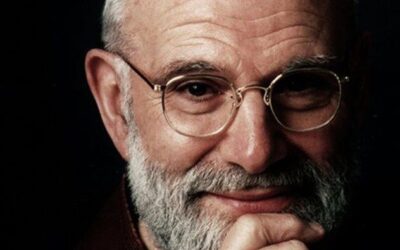
Who was Johannes Tauler?
Johannes Tauler (c. 1300-1361) was a German Dominican friar, theologian and one of the most influential Christian mystics of the 14th century. As a prominent figure in the medieval Rhineland mystic tradition, Tauler’s sermons and spiritual teachings emphasized the soul’s inner journey towards God, the importance of detachment from worldly desires, and the transformative power of surrendering to divine grace. Tauler’s mystical insights not only had a profound impact on Christian spirituality but also anticipated key themes in modern depth psychology, offering a rich framework for understanding the dynamics of the psyche and the process of psychological healing.
This essay explores Tauler’s mystical theology, its resonance with depth psychology, and its implications for the treatment of psychological trauma. By examining Tauler’s teachings on the soul’s inner journey, the role of suffering in spiritual growth, and the importance of surrender and grace, we gain valuable insights into the nature of the psyche and the process of psychological transformation. Moreover, by applying Tauler’s ideas to the field of trauma therapy, we discover a profound framework for conceptualizing and treating the wounds of the soul.
Tauler’s Vision of the Soul’s Inner Journey
At the heart of Johannes Tauler’s mystical theology is a deep concern for the soul’s inner journey towards union with God. In his sermons, Tauler describes this journey as a process of detachment, purification, and transformation, through which the soul gradually learns to let go of its attachment to worldly desires and embrace the divine presence within.
For Tauler, the soul’s journey begins with a recognition of its own poverty and helplessness before God. In a state of spiritual poverty, the soul acknowledges its fundamental dependence on divine grace and begins to turn away from the distractions and temptations of the world. This turning inward marks the beginning of what Tauler calls the “path of detachment,” a process of gradually relinquishing one’s attachment to external things and cultivating a deeper awareness of God’s presence.
As the soul progresses along the path of detachment, it undergoes a profound process of purification, in which the “dross” of worldly desires and selfish attachments is gradually burned away. This purification can be a painful and challenging process, as the soul confronts its own darkness and limitations. However, for Tauler, this inner struggle is an essential part of the spiritual journey, as it prepares the soul to receive the transforming power of divine grace.
Ultimately, the goal of the soul’s inner journey is union with God, a state in which the soul becomes so fully absorbed in the divine presence that it loses all sense of separation and distinction. In this state of mystical union, the soul experiences a profound sense of peace, joy, and fulfillment, as it rests in the very heart of God.
Tauler’s vision of the soul’s inner journey has important implications for our understanding of the human psyche and the process of psychological growth and transformation. Like the mystics, depth psychologists recognize that the psyche is not a static or one-dimensional entity but rather a dynamic, multi-layered reality that encompasses both conscious and unconscious dimensions.
From a depth psychological perspective, Tauler’s path of detachment can be seen as a process of psychological differentiation, in which the individual learns to separate from the external world and cultivate a deeper sense of self-awareness and inner authority. This process of individuation, as Carl Jung called it, involves a gradual confrontation with the shadow, the repressed or unconscious aspects of the psyche, and a integration of these elements into a more whole and authentic sense of self.
Similarly, Tauler’s emphasis on purification and the transformative power of suffering resonates with the depth psychological understanding of the role of crisis and conflict in psychological growth. In the process of individuation, the psyche often undergoes a series of challenges and ordeals, as it confronts its own limitations and shadow elements. These crises can be deeply painful and disorienting, but they also hold the potential for profound transformation and growth.
The Role of Suffering in Spiritual and Psychological Transformation
One of the most striking aspects of Johannes Tauler’s mystical theology is his emphasis on the transformative power of suffering. For Tauler, suffering is not simply an unwanted or accidental part of the spiritual life but rather an essential means by which God purifies the soul and prepares it for union with the divine.
In his sermons, Tauler frequently speaks of the “school of suffering,” a process of inner trials and tribulations through which the soul learns to detach itself from worldly comforts and embrace the way of the cross. This suffering can take many forms, from physical illness and material hardship to inner struggles with doubt, despair, and temptation. Whatever its form, however, Tauler sees suffering as a precious gift from God, a means by which the soul is stretched, purified, and ultimately transformed.
For Tauler, the key to navigating the school of suffering is not to resist or flee from it but rather to embrace it as an opportunity for growth and self-surrender. By accepting one’s sufferings with patience, humility, and trust in God, the soul gradually learns to let go of its own will and unite itself more fully with the divine will. This process of surrender is not a passive resignation but rather an active cooperation with God’s transforming grace, a willingness to be molded and shaped by the divine hand.
Tauler’s insights into the transformative power of suffering have important implications for the field of depth psychology and the treatment of psychological trauma. In many ways, Tauler’s “school of suffering” anticipates the modern understanding of the role of crisis and conflict in psychological growth and individuation.
From a depth psychological perspective, suffering is not merely a negative or pathological experience but rather a potentially transformative one. Just as physical pain can alert us to the need for healing and change, psychological suffering can serve as a call to growth and transformation. In the process of individuation, the psyche often needs to confront and work through deep layers of pain, fear, and trauma in order to achieve a more whole and integrated sense of self.
This understanding of the transformative power of suffering is particularly relevant in the context of trauma therapy. Trauma, by its very nature, involves a shattering of the psyche’s normal defenses and a confrontation with overwhelming fear, helplessness, and pain. In the aftermath of trauma, individuals often struggle with a range of distressing symptoms, including anxiety, depression, flashbacks, and dissociation.
From a Taulerian perspective, the key to healing from trauma is not to avoid or suppress the pain but rather to engage with it in a spirit of self-compassion, acceptance, and surrender. By learning to be present with one’s suffering and to trust in the transformative power of grace, individuals can gradually integrate their traumatic experiences and reclaim a sense of wholeness and vitality.
In the context of trauma therapy, this may involve a range of approaches, including somatic experiencing, EMDR, and mindfulness-based interventions, which help individuals to cultivate a more compassionate and accepting relationship with their own inner experience. By learning to tolerate and even befriend their own suffering, trauma survivors can tap into the transformative power of the psyche and move towards greater healing and resilience.
The Role of Surrender and Grace in Healing
Another key theme in Johannes Tauler’s mystical theology is the importance of surrender and grace in the process of spiritual transformation. For Tauler, the soul’s journey towards God is not primarily a matter of human effort or striving but rather a gift of divine grace, which the soul receives through a process of self-surrender and receptivity.
In his sermons, Tauler often speaks of the soul’s need to become like a “virgin wax,” soft and malleable in the hands of God. This state of receptivity and surrender is not a passive resignation but rather an active cooperation with divine grace, a willingness to be molded and shaped by the transforming power of God’s love.
For Tauler, this process of surrender and grace is closely linked to the practice of detachment and inner poverty. As the soul learns to let go of its attachment to worldly desires and cultivate a deeper sense of spiritual poverty, it becomes more open and receptive to the influx of divine grace. This grace, in turn, enables the soul to undergo a profound transformation, as it is gradually conformed to the image and likeness of God.
Tauler’s emphasis on surrender and grace has important implications for the field of depth psychology and the treatment of psychological trauma. From a depth psychological perspective, the process of healing and transformation is not simply a matter of personal effort or willpower but rather a complex interplay between the individual psyche and the larger forces of the unconscious.
In the context of trauma therapy, this understanding of surrender and grace can be particularly valuable. Trauma survivors often struggle with a sense of helplessness, shame, and self-blame, as they grapple with the overwhelming impact of their experiences. The temptation in the face of such pain is often to try to control or “fix” oneself through sheer effort and determination.
However, from a Taulerian perspective, true healing comes not through self-reliance but through a profound surrender to a power greater than oneself. By learning to let go of the illusion of control and cultivate a sense of trust and receptivity, trauma survivors can open themselves to the transformative power of grace and allow the deeper wisdom of the psyche to guide their healing journey.
In the context of trauma therapy, this may involve a range of approaches that emphasize the importance of self-compassion, mindfulness, and spirituality. By learning to cultivate a more accepting and nurturing relationship with their own inner experience, trauma survivors can begin to release the burden of self-judgment and blame and allow the natural healing process to unfold.
Moreover, by connecting with a sense of grace or a higher power, trauma survivors can tap into a deeper source of strength and resilience, one that goes beyond their own limited resources. Whether through prayer, meditation, or other spiritual practices, the cultivation of a relationship with the divine can be a powerful source of support and guidance on the path of healing.
Tauler’s Relevance for Depth Psychology and Trauma Treatment
The mystical theology of Johannes Tauler offers a rich and profound framework for understanding the nature of the psyche and the process of psychological transformation. Tauler’s insights into the soul’s inner journey, the transformative power of suffering, and the importance of surrender and grace anticipate key themes in modern depth psychology and provide valuable guidance for the treatment of psychological trauma.
By exploring the parallels between Tauler’s mystical vision and the insights of depth psychology, we gain a deeper appreciation for the spiritual dimensions of the healing process. Tauler’s emphasis on detachment, purification, and union with the divine finds echoes in the depth psychological understanding of individuation, the confrontation with the shadow, and the integration of the psyche’s disparate elements into a more whole and authentic sense of self.
Moreover, Tauler’s teachings on the school of suffering and the importance of surrender and grace offer a powerful framework for conceptualizing and treating psychological trauma. By learning to embrace the transformative power of suffering and cultivate a sense of trust and receptivity in the face of overwhelming pain, trauma survivors can tap into the deeper wisdom of the psyche and allow the natural healing process to unfold.
In this sense, Tauler’s mystical theology is not just a historical curiosity but a living wisdom tradition, one that continues to speak to the deepest needs and aspirations of the human soul.
Main Ideas and Key Points:
- German Dominican friar and influential Christian mystic (c. 1300-1361)
- Key themes in Tauler’s mystical theology:
- Soul’s inner journey towards God
- Importance of detachment from worldly desires
- Transformative power of surrendering to divine grace
- Vision of the soul’s inner journey:
- Process of detachment, purification, and transformation
- Path begins with recognition of spiritual poverty
- Purification involves confronting inner darkness
- Goal is union with God
- Role of suffering in spiritual transformation:
- “School of suffering” as means of purification
- Suffering seen as a gift from God
- Importance of embracing suffering with patience and trust
- Emphasis on surrender and grace:
- Soul’s journey primarily a gift of divine grace
- Importance of becoming like “virgin wax” in God’s hands
- Link between detachment, inner poverty, and receptivity to grace
- Relevance to depth psychology and trauma treatment:
- Parallels with individuation process
- Insights into transformative power of crisis and conflict
- Framework for understanding psychological healing
- Importance of self-compassion and acceptance in trauma recovery
- Value of surrendering to a higher power in healing process
- Tauler’s teachings offer a spiritual perspective on psychological transformation and healingRead More Depth Psychology Articles:Read More Depth Psychology Articles:Taproot Therapy Collective Podcast
Mystics and Gurus
References
Tauler, J. (1985). Johannes Tauler: Sermons. (M. Shrady, Trans.). Paulist Press.
Tauler, J. (2001). The Inner Way: The Mystical Theology of Johannes Tauler. (P. F. O’Connell, Trans.). Gracewing.
Hofmann, M. (2014). Johannes Tauler: Sermons for the Christian Year. (M. Hofmann, Trans.). New City Press.
Gnädinger, L. (1993). Johannes Tauler: Life and Spiritual Teaching. (J. Bowden, Trans.). SCM Press.
O’Connell, P. F. (1985). The Mysticism of Johannes Tauler. In Johannes Tauler: Sermons (pp. 1-30). Paulist Press.
Further Reading
Eckhart, Meister. (2009). The Complete Mystical Works of Meister Eckhart. (M. O. C. Walshe, Trans.). Crossroad.
Suso, Henry. (2014). Henry Suso: The Exemplar, with Two German Sermons. (F. Tobin, Trans.). Paulist Press.
Underhill, E. (1920). The Mystics of the Church. James Clarke & Co.
Turner, D. (1995). The Darkness of God: Negativity in Christian Mysticism. Cambridge University Press.
McGinn, B. (1998). The Flowering of Mysticism: Men and Women in the New Mysticism (1200-1350). Crossroad.
Welch, J. (1982). Spiritual Pilgrims: Carl Jung and Teresa of Avila. Paulist Press.
Edinger, E. F. (1992). Ego and Archetype: Individuation and the Religious Function of the Psyche. Shambhala.
Edinger, E. F. (1994). The Mystery of The Coniunctio: Alchemical Image of Individuation. Open Court.
Stein, M. (1998). Jung’s Map of the Soul: An Introduction. Open Court.
Johnson, R. A. (1993). The Fisher King and the Handless Maiden: Understanding the Wounded Feeling Function in Masculine and Feminine Psychology. HarperOne.
Kalsched, D. (1996). The Inner World of Trauma: Archetypal Defenses of the Personal Spirit. Routledge.
Van der Kolk, B. (2015). The Body Keeps the Score: Brain, Mind, and Body in the Healing of Trauma. Penguin Books.
Herman, J. L. (2015). Trauma and Recovery: The Aftermath of Violence–From Domestic Abuse to Political Terror. Basic Books.
Levine, P. A. (2010). In an Unspoken Voice: How the Body Releases Trauma and Restores Goodness. North Atlantic Books.
Kalsched, D. (2013). Trauma and the Soul: A Psycho-Spiritual Approach to Human Development and its Interruption. Routledge.
Jungian Innovators
Topics
How do Therapy, Mysticism and Spirituality Intersect?
How to Understand Carl Jung
How to Use Jungian Psychology for Screenwriting and Writing Fiction
How the Shadow Shows up in Dreams
Using Jungian Thought to Combat Addiction
Jungian Shadow Work Meditation
Free Shadow Work Group Exercise
Jungian Analysts
Mythology, Anthro, Evopsych, Comparative Religion
Mystics, Philosophers and Gurus
Pseudo-Dionysius the Areopagite
Spirituality


























0 Comments